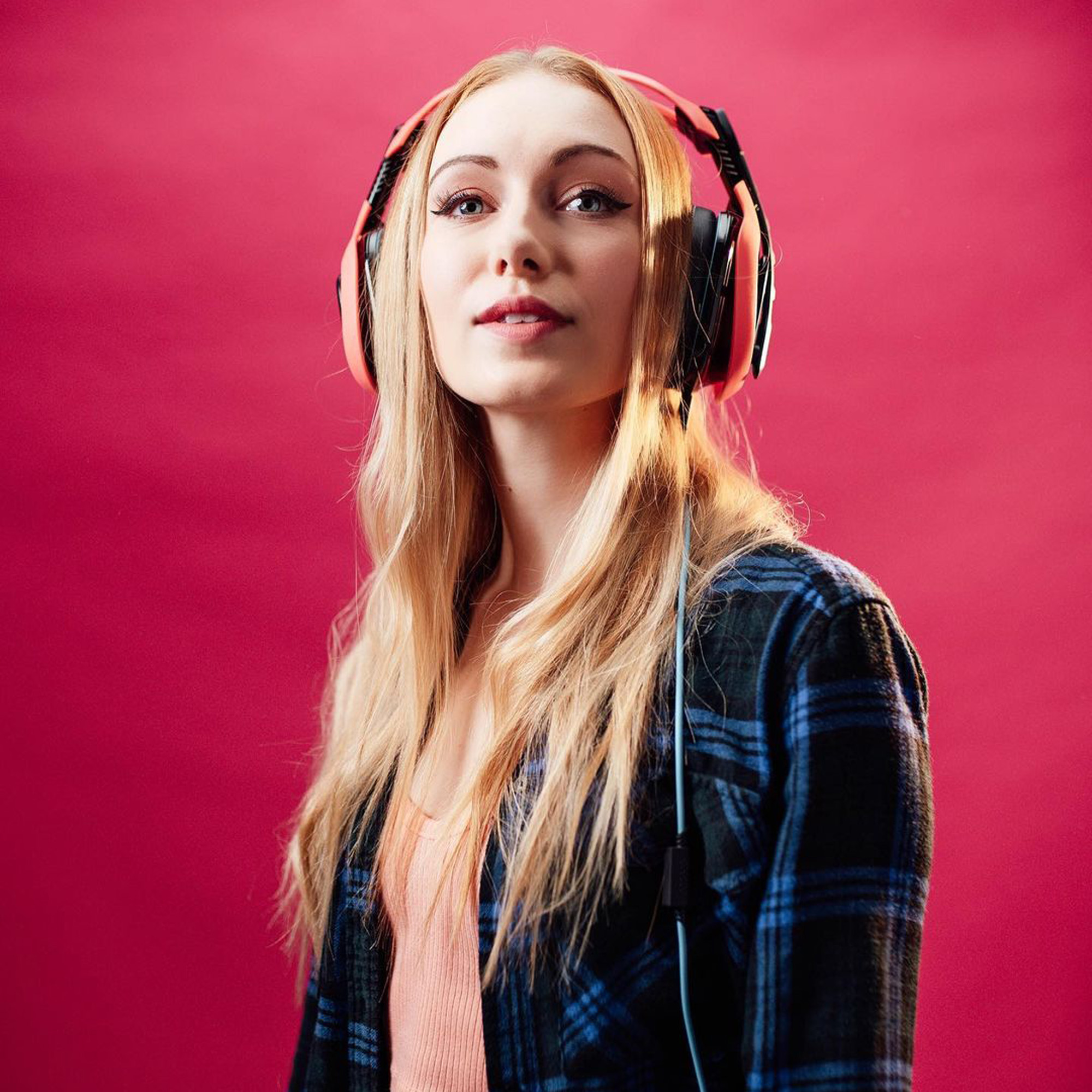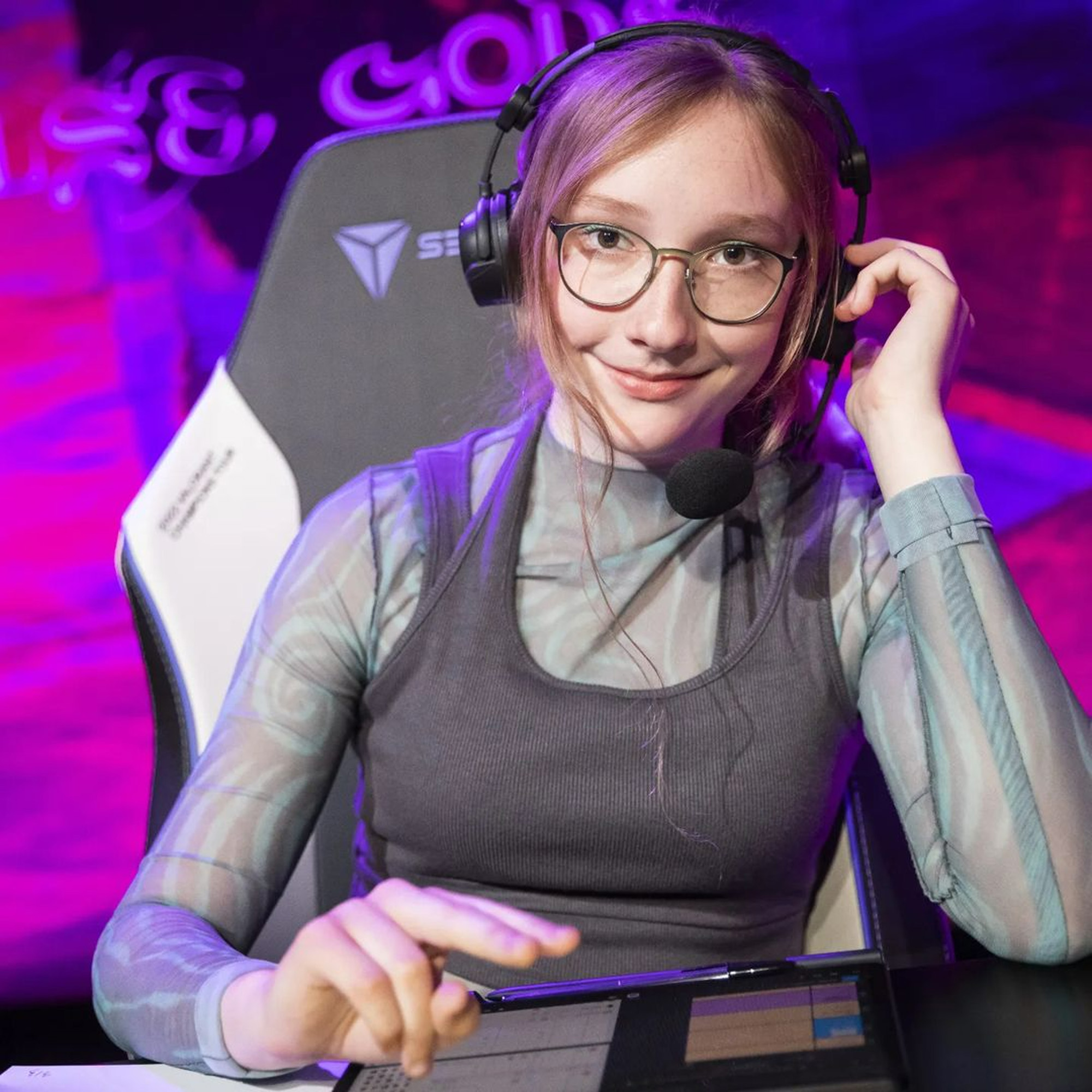
- POPSUGAR Australia
- Gaming
- What Exactly Does an Esports Host Do? We Asked Katie Bedford
What Exactly Does an Esports Host Do? We Asked Katie Bedford


POPSUGAR Australia has partnered with Alienware to highlight female champions in the gaming industry.
When you think about esports, often the first things that comes to mind are the players and the casters. But, like with any industry, there are so many more people working tirelessly to make esports happen, like Katie Bedford.
Katie is an esports host and caster, best known for her work on the desk at the Call of Duty World League. She’s a renowned host and very upfront about what the industry is really like for women: “The first step young girls need to take is to understand and believe that they belong in esports — in gaming — just as much as anyone else.”
We asked her what an esports host does, how it’s different from casting and what life’s like for women who are public faces for the gaming industry. She also gave us her best pieces of advice for how to become an esports host, so if you’ve ever considered it as a career, or are interested in learning more about esports in general, read on to learn from an expert.
POPSUGAR Australia: Hello! You’re an esports host known for Call of Duty World League. Can you walk us through a day in the life of an esports host during a big event?
Katie Bedford: Big events are chaotic! Fun and crazy and stressful and challenging and far too many other adjectives to list here. I always get nerves in the minutes leading up to the open of Day One of a broadcast. There’s something unique in that very first open where you know you’re the first face and voice people are going to see and hear. You need to be able to tap into fans’ energy and excitement and match it with your own.
Everything after that? It feels like it clicks into place and all the work you’ve put in beforehand flows out of you into your monologues, discussions with analysts, sponsor reads and more. It’s thrilling, it’s scary and, above all, it’s a privilege.
PS: How is it different to casting?
KB: I don’t have the same nerves with casting as I do hosting because you’re already synced into the flow of the broadcast before it ever gets to you. Casting is much more fast-paced. It keeps you on your toes and forces you to adapt on the fly to whatever you are seeing in front of you.
I think my favourite thing about casting, though, is the rapport and camaraderie you build with your co-caster. It’s this inherent trust you have in the other person that’s built through repetition. Honestly, a lot of the time, I forget there’s even a crowd. It’s just us three: the game, my co-caster and me.
PS: What was the defining moment in your life that made you decide to join the esports industry?
KB: I’ve loved gaming my whole life, but I never thought I had a skillset that was transferable. I was working a job I’d been offered by a family friend straight out of college. I wasn’t really interested in it, but it was work and I threw myself into it.
I was approached a few years later about starting a gaming and esports newsletter — think a morning digest email. I jumped at the chance because I realized I didn’t like what I did and I didn’t like the people my work required me to be around. Through that newsletter I started attending and networking at esports events, and here I am!
PS: Do you need to be able to play a video game at a professional level to be able to host a tournament?
KB: Absolutely not. You don’t need those credentials to be a desk host, stage host, interviewer, analyst, caster or any other member of on-air talent. Does it offer unique insight? Of course! A professional perspective adds dimension and depth to a broadcast, but it isn’t a requirement of understanding a game and putting on a good show. I would hate for a mentality like this to make a budding commentator feel like they couldn’t pursue their passion because they don’t have some arbitrary required credential.
PS: How many sources of income do esports hosts typically have?
KB: It varies host by host. Some are contracted to a single esport and that’s all they do. Some are freelance and work a variety of different gigs with many different games. Both are great for their own reasons. So, unfortunately, the best answer I have is: “it depends”.
PS: What’s the first step young girls should take if they want to become an esports host?
KB: The first step young girls need to take is to understand and believe that they belong in esports — in gaming — just as much as anyone else. I was bullied for my love of gaming growing up. My mom didn’t like it, my friends made fun of me for it and I was never exposed to opportunities because I was made to believe there were none. Thankfully, I think culturally we are shifting in a much better direction now.
As for something a little more tangible? Network, network, network! I can’t stress enough how important this skill is. You don’t have to be the life of the party or the most outgoing, extroverted person. But you do have to be able to shake hands, make connections and build relationships with people in this industry.
PS: What barriers do women in esports face?
KB: I know I just said we’re moving in the right direction, but moving doesn’t mean we’ve reached the destination. Sexism and discrimination in many forms are a sad truth in our industry. While I can’t speak for all women, I imagine many of us have experienced these things in some form or another. But again, I do want to stress that I feel there are improvements happening. Allies are many and vocal. Women are strong and determined. We’ll get there.
PS: Esports is rapidly growing in popularity – what do you think is in store for the industry, and especially for women in esports?
KB: Esports is a budding industry when you compare it to so many other established forms of entertainment. We’re still experiencing the growing pains that industries like sports, cinema and theatre worked through a long time ago. Esports needs to walk before it can run — learn the important lessons and foster an environment that will help an industry so many of us love so dearly to flourish and grow into a cultural mainstay.
I believe women will continue to be a central part of esports, and while I’ve seen a lot of growth in the broadcast and talent aspects of esports, I hope we can see more women rising to the top of their respective games as professional players, too.
Watch Katie’s Twitch here and follow her on Twitter to hear about her upcoming tournaments.
Read more POPSUGAR gaming content below:
- Is ‘Tears of the Kingdom’ a Prequel to the First Ever Zelda Game? Lore Experts Think So
- “She’s a Top”: Anna Torv Answers All Our Questions About Tess In HBO’s ‘The Last of Us’
- 5 Games to Play Before Declaring ‘The Last of Us’ the GOAT
- Elden Ring Detectives Have Some Wild Theories About the DLC — Here Are the Best Ones
- Joel Finally Called Ellie “Baby Girl” In ‘The Last of Us’ and Fans Are Not Okay


